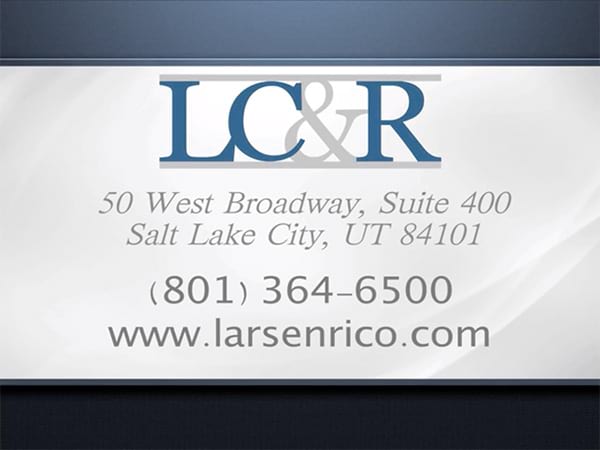Category Archives: Drawbacks of Utah’s 2014 LLC Act
Right of Direct Action between Members of Closely-Held LLCs
Understanding the difference between a direct as opposed to a derivative cause of action is critical in litigation between members of a closely-held limited liability company. The procedural process is not substantive. The important difference is whether the aggrieved member or the LLC recovers the damages. If you have three members in an LLC,… Read More »
Authority to Bind a Limited Liability Company
Authority to Bind a Limited Liability Company Authority to bind is always an important issue in any commercial transaction. In a member-managed LLC, one would usually expect each member to have authority to bind. In a manager-managed LLC, one would usually expect the manager to have authority to bind. Certain provisions in the 2014… Read More »
Allocating Distributions Under Utah’s 2014 Revised Uniform Liability Company Act
For reference, it is estimated that at least 60% of all LLCs formed in Utah do not involve attorneys. Some of these persons who form Utah LLCs on their own – especially small business people and other entrepreneurs – may be very surprised with the results of what they created without the guidance of… Read More »
The Mandatory Provisions of the 2014 LLC Act Are Not Subject to Oral or Implied Modifications
The 2014 Utah Revised Uniform Limited Liability Company Act, Utah Code Ann. § 48-3a-101, et seq., (the “2014 LLC Act”) governs disputes between and among members of a limited liability company (“LLC”). There are three general types of provisions in the 2014 LLC Act: (1) administrative; (2) mandatory or ‘non-waivable’ (the operating agreement may… Read More »
Oral or Implied Modifications of a Written Operating Agreement of a LLC
The impact of the 2014 Utah Revised Uniform Limited Liability Company Act, Utah Code Ann. § 48-3a-101, et seq., (the “2014 LLC Act”) upon disputes between and among members of a limited liability company (“LLC”) is a topic which could consume days of discussion and debate. This blog is limited to oral or implied… Read More »


